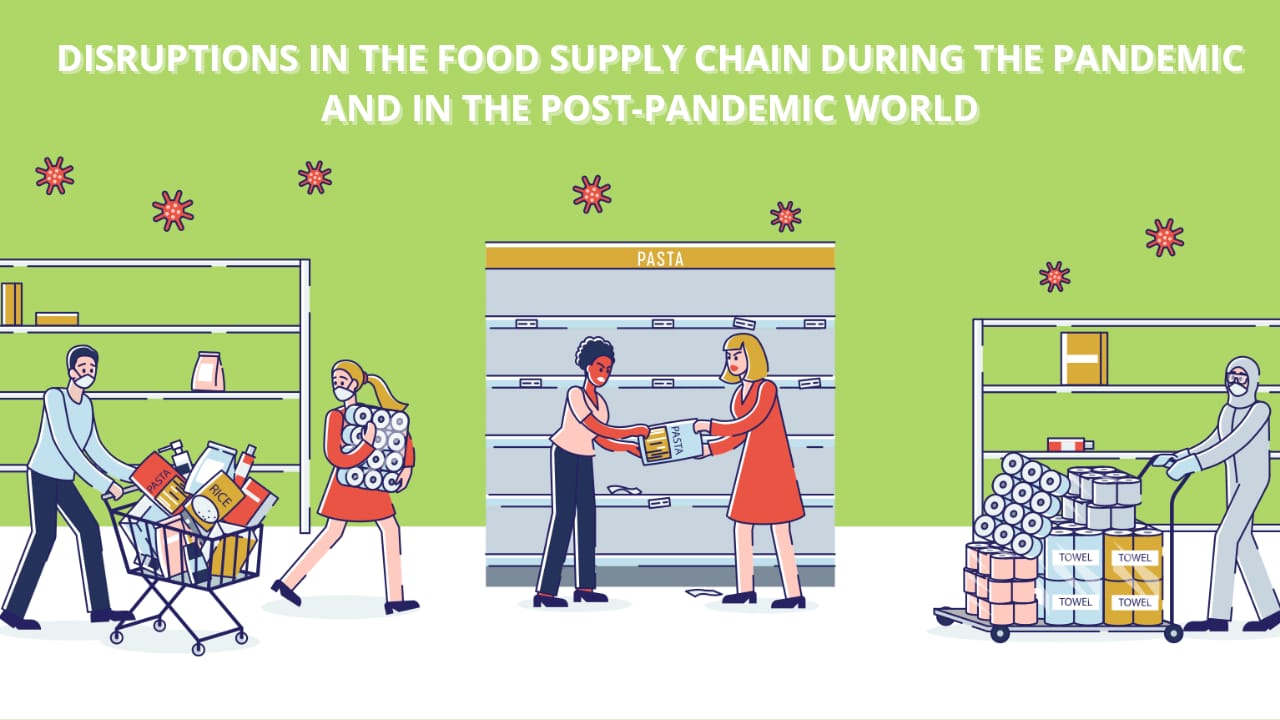The Covid-19 outbreak besides causing a global upheaval also significantly impacted economic activities across countries and various industries where the food businesses were no exception. This industry is different from others as it is responsible for producing daily life-essential products and with the issue of rampant unemployment staggering throughout the pandemic period and the lockdown itself, there was also the burden of disturbed distributors and processors throughout the countries as well.
As per the 2020 report by Food & Agricultural Organization of the UN, the repercussions faced by the food industry due to lockdown could be assessed from two perspectives, i.e., food supply and food demand that directly impact the problem of food security. The global lockdown created a shortage of staff in the various processes from the farm to the fork, within the food manufacturing and supply industry.
The supply chain process of the food organizations which typically consists of stages from harvesting, warehousing & logistics, to retail, has all been significantly hindered by global border controls as well as freight restrictions. Adding to this is the problem of food items, specifically perishable ones, such as milk, fresh fruits, and vegetables, that cannot stand the delayed arrival to the market, which is evident from the fact that several liters of milk and other putrefiable products were discarded by manufacturers owing to the obstructed supply chain.
Another reason for a disturbance in the supply chain of the food industry was the sudden changes, faced by the manufacturers/producers and suppliers, in the market demand for products due to the impact of the pandemic on the customer’s food consumption behavior like leaning towards healthier and/or alternative diet options. Therefore, the food supply chain which had already been in transition was forced to catch up just like any other industry. The transition happened due to changing customer preferences and consumption habits, advancing technologies, trade restrictions, and changing legislation and rules.
In the wake of alarming infections created by the Covid-19 outbreak, one of the alternative solutions pertaining to sourcing ingredients or the raw material is to create a wider network of suppliers by including and working with local/regional ones and creating a trustworthy relationship with supply chain managers, investing in its worker’s healthcare and overall wellness as well as creating a brand trust, that is pivotal for these organizations to sustain post covid period.
Therefore, Food companies now leverage more than ever on third party logistics solutions to dramatically improve their port-to-retail-shelf cycle time. 3PL companies can handle everything from receiving the containers, offloading the containers, managing warehouse inventory, picking orders for outbound, and delivering to the consignee together with giving visibility into this entire process. 3rd Party Logistics also offers pool services that can save time and money like doing partial truck loads. Many 3PLs are also moving to offer temp-controlled logistics services to keep products in range throughout the entire supply chain in compliance with all modern food safety requirements.
Recent Blog: Impact of Covid-19 on Supply Chain and Factors to Consider moving Ahead
At a time when the food industry is still emerging from the disruptions caused by the pandemic, there are many other vulnerabilities affecting it. Geopolitical scenarios like war and trade restrictions, climate change upsetting crop cycle, bovine viral injections of the dairy industry, and many more. Complex supply chains that source ingredients globally are particularly vulnerable to the risks associated with “just-in-time” sourcing. This is where third-party logistics providers help food and beverage processors shift their models, creating workable logistics solutions, setting up strategic networks of supply chain operators, and diversifying sources of supply to adapt rapidly in case of any logistical interference in the future.



